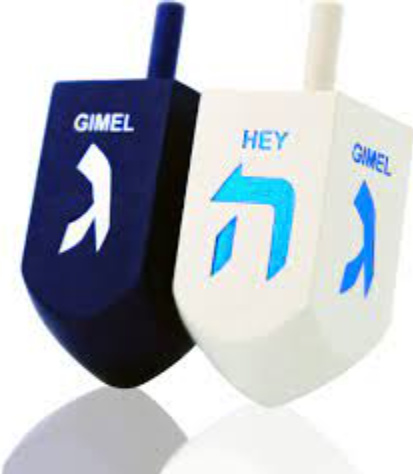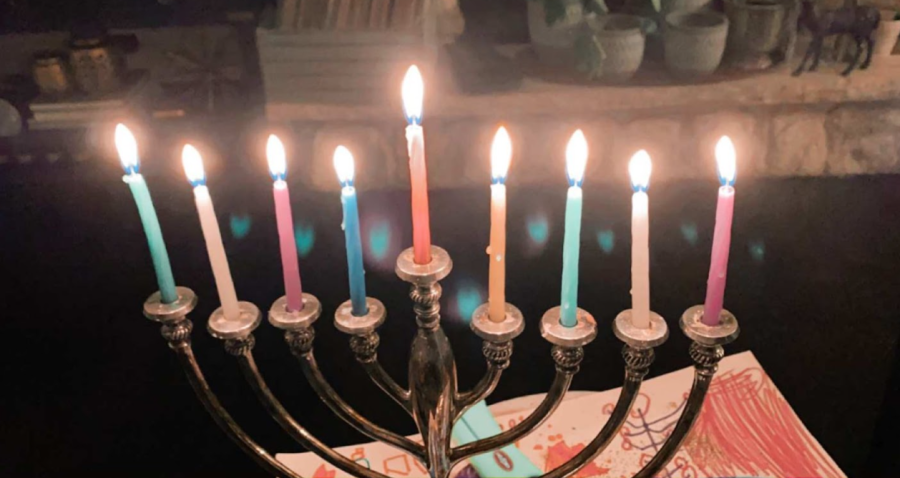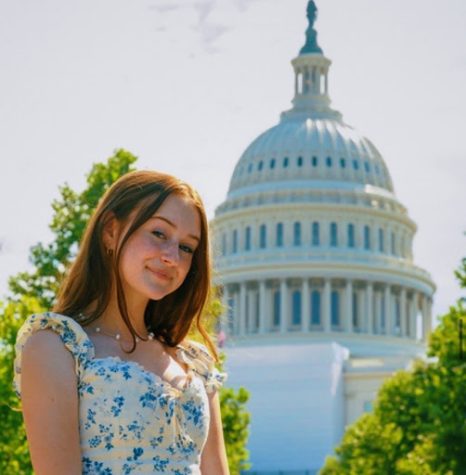Hanukkah’s history
My family’s menorah, lit for all eight nights of Hanukkah.
December 6, 2022
For most who don’t celebrate, Hanukkah is the ‘Jewish Christmas.’
It falls within the same time period as Christmas and we give and receive gifts, as well as cherish time with family. However, Hanukkah’s history and significance sets it apart from Christmas.
After a year of rampant antisemitism, including messages from beloved public figures like Kanye West and Kyrie Irving, it’s more important than ever to realize and learn about the traditions in the Jewish culture that have lasted for thousands of years.
In 200 BCE, the land of Judea (now known as Israel) was taken over by King Antiochus III of Syria. He stole the land that belonged to the Jewish people but allowed them to continue practicing their religion. Unfortunately, when his son Antiochus IV took over, Judaism was outlawed. He ordered the Jewish people to instead worship Greek deities, which is strictly against Jewish ideals.
In 168 BCE, King Antiochus’ soldiers invaded Jerusalem, the holiest city, and began to massacre thousands of Jews. His army destroyed their most sacred sanctuary, the Second Temple, and put up altars inside for Jews to worship Zeus.
The Jewish people refused to stand for the hatred they faced and started a rebellion led by their Rabbi, Mattathias. Mattathias died in battle and was succeeded by his son Judah, who was given the nickname ‘Maccabee,’ which translates to ‘Hammer,’ because of his strength and determination.
After two years of battle, Judah’s army successfully defeated the Syrians even though they had very few resources.
But the trouble didn’t end there. As the Jewish people rebuilt the Second Temple, they found that there wasn’t enough oil to light its menorah–a set of candles that was meant to burn every night and fill the temple with light.
They decided to use the last few drops of oil even though it would only keep the menorah lit for one night, but in a miracle, the oil lasted for eight nights which gave the Jewish people enough time to find more oil for the future. A celebration occurred for each night that the miracle blessed them, and they danced and praised G-d for their blessings.

They declared ‘נס גדול היה שם’, which in English means “a great miracle has happened here.” The first letter of each Hebrew word in the sentence was placed on a spinning dreidel, creating a game for children to play in the candlelight.
Today, Jewish families around the world light one candle for every night of Hanukkah on their menorahs at home, eat foods fried in oil and spin their Dreidels to celebrate the bravery that Judah Maccabee and his army had to fight for their rights.
As Jewish people migrated to the US, they felt out of place for celebrating Hanukkah and participating in Hanukkah traditions, especially as the US puts so much emphasis on Christmas. In an effort to blend in more with the American Christmas traditions, many parents chose to give their children gifts for every night of Hanukkah as well.
Since the Jewish religion follows the lunar calendar, Hanukkah’s first night falls on Dec. 18 and lasts until Dec. 26. Be sure to wish your Jewish friends a “Chag Hannukah Sameach” as they celebrate!







